“Back To School” time is in full swing, which means we are getting back into our normal routines. Within our normal routines, we often have less time to prepare meals from scratch, our busy lives get in the way of extensive cooking with separate ingredients.
Therefore, we were curious to learn more about European consuming behaviors regarding Ready Meals from the supermarket. Think of ready-to-eat meals that are easily prepared in the microwave or oven. Find out more about consumption routines and other preferences in our Ready Meals Consumer Report.
MOST EUROPEANS CONSUME READY MEALS
81% of Europeans eat Ready Meals. An average of 35% chooses to “sometimes” consume such meals. Followed by “rarely”, with 33%. It appears that Dutch inhabitants are least interested in eating Ready Meals, as 26% of consumers claim to not eat Ready Meals at all.
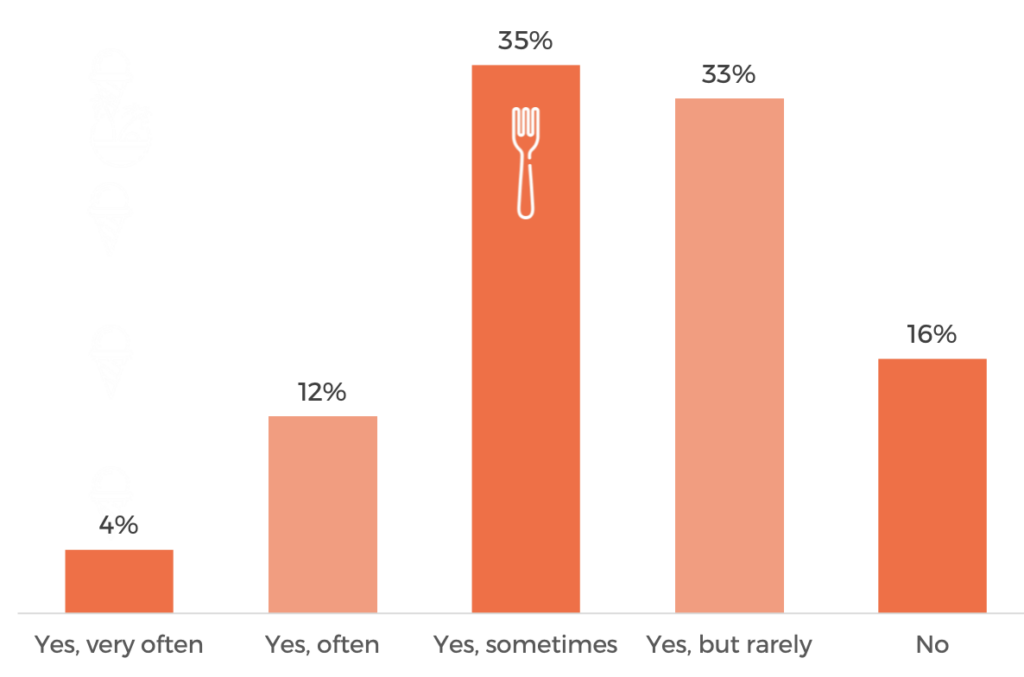
Those who don’t eat Ready Meals…
… Consider it unhealthy – 61%
… Prefer cooking from scratch – 59%
… Think it’s too expensive – 34%
… Cook for their entire family – 21%
… Have enough time to cook – 18%
READY MEALS: AN OCCASIONAL EVENT
For the people that do eat Ready Meals, it is mostly a less than monthly (24%) occasion. Ready meals are least often consumed in the Netherlands.
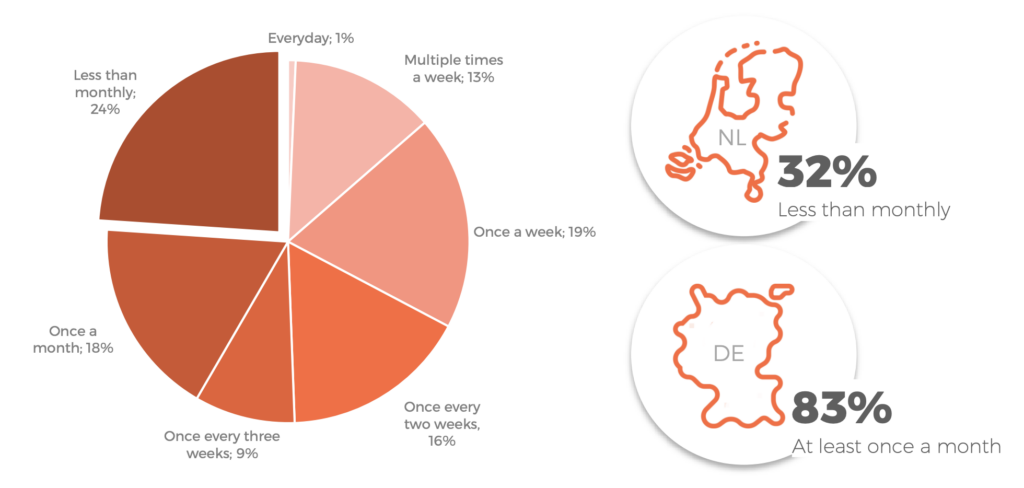
CONVENIENCE, THE BIGGEST MOTIVATOR
The biggest reason for Europeans to consume Ready Meals is having too little time to cook from scratch (58%). Followed by liking the ease of it (50%), and the convenience of easily storing and freezing it (27%).
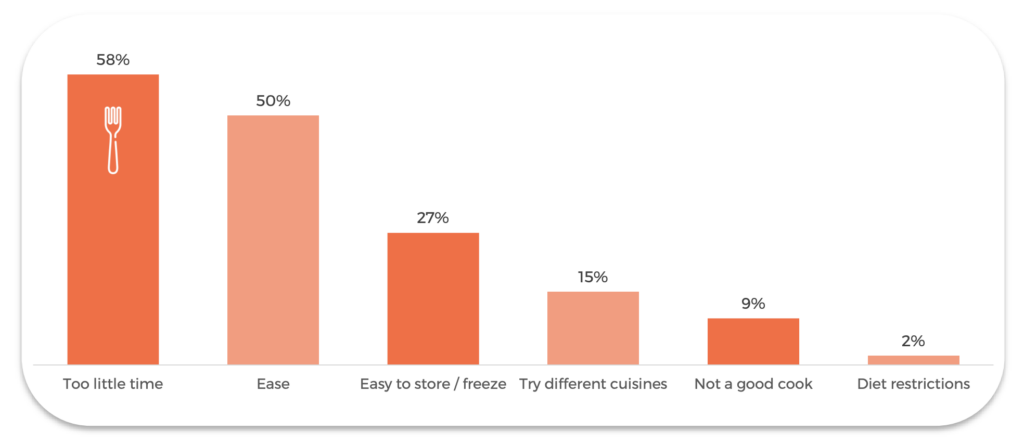
A “FRESH” ITALIAN READY MEAL MOST PREFERRED
Most Europeans (77%) like to consume Ready Meals that are “fresh” and stored in the refrigerated section of the supermarket. 58% of Europeans (also) like Ready Meals that are frozen. In terms of cuisine, Italian cuisine steals the heart of European consumers the most (66%).
Fun facts
• Unlike all other participating countries, the Germans show to consume more “frozen” Ready Meals than “fresh” Ready Meals.
• The French like their cuisine the best (61%).
• In the UK, the Asian cuisine is most popular (62%).
CONVENIENCE WORTH PAYING FOR
41% of European consumers are willing to pay between 2 and 4 euros for a Ready Meal. When asking consumers if they mind paying more for one Ready Meal than the same ingredients would cost them separately, 54% claimed to mind but understands why.
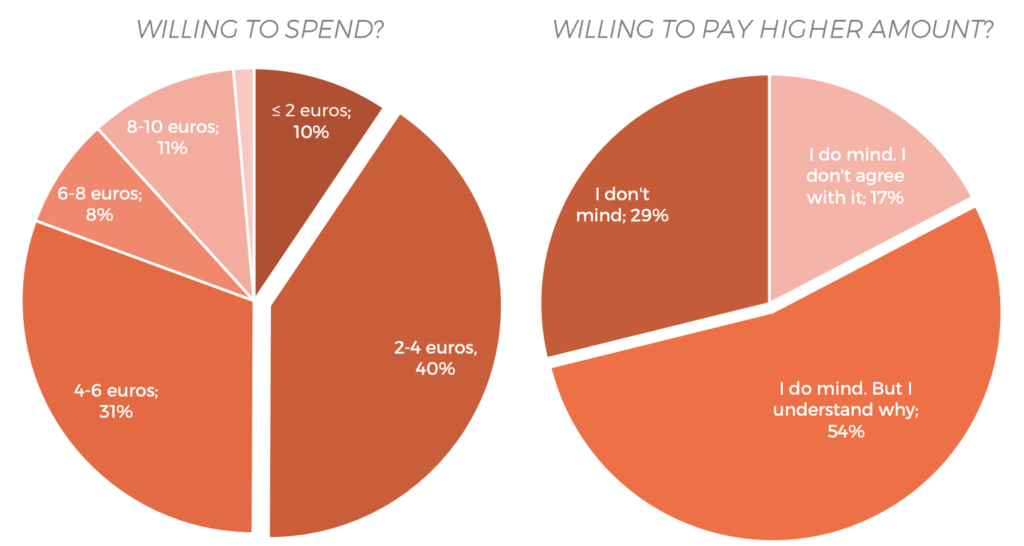
Fun fact
Belgian and Dutch inhabitants are willing to pay a bit more for one Ready Meal than the other participating countries (namely 4 to 6 euros)
READY MEALS: A DINNER PARTY FOR ONE
Not very surprisingly, eating a Ready Meal is often done alone (51%). But numbers show that it is consumed with a partner too (29%) and even sometimes with family (23%).
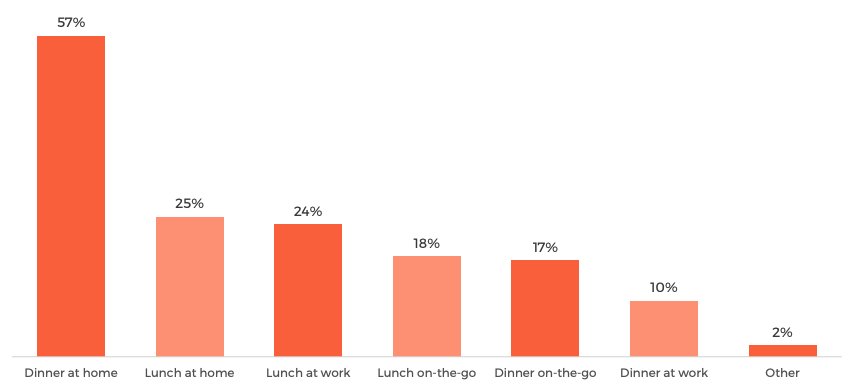
Fun facts
• Spain seems to be the only participating country where Ready Meals are consumed more often during lunch (45%) than during dinner (33%).
• In the Netherlands, Ready Meals are least consumed during lunch (5%).
VALUE FOR MONEY IMPORTANT FOR EUROPEANS
When picking Ready Meals, most Europeans claim to “sometimes” read the list of ingredients on the label (48%). 31% says to “always” read the list of ingredients. Price (64%) and portion size (50%) are the two main factors that consumers take into account while shopping for Ready Meals.
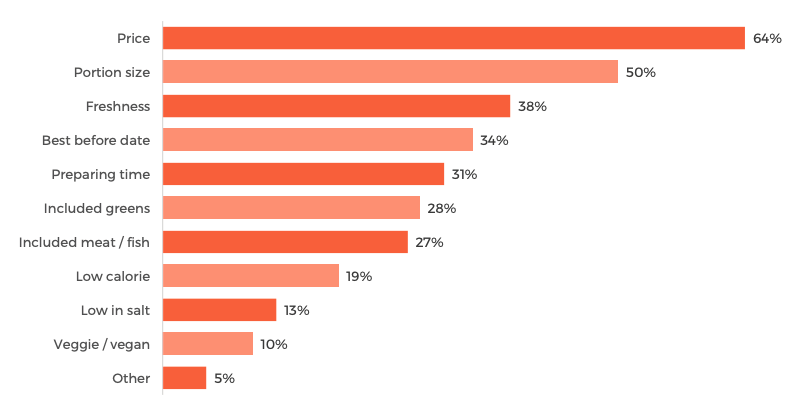
Fun facts
• Spain is the only country where most people “always” read the listed ingredients (48%).
• Germany has the highest percentage of people that “never” read the label with listed ingredients (32%).
WHAT ABOUT LOYALTY?
Most Europeans are not very loyal when it comes to Ready Meals (66%). This might have to do with the fact that most consumers think the quality is not more than “okay” (53%). However, 37% does think the quality of Ready Meals is “good”.
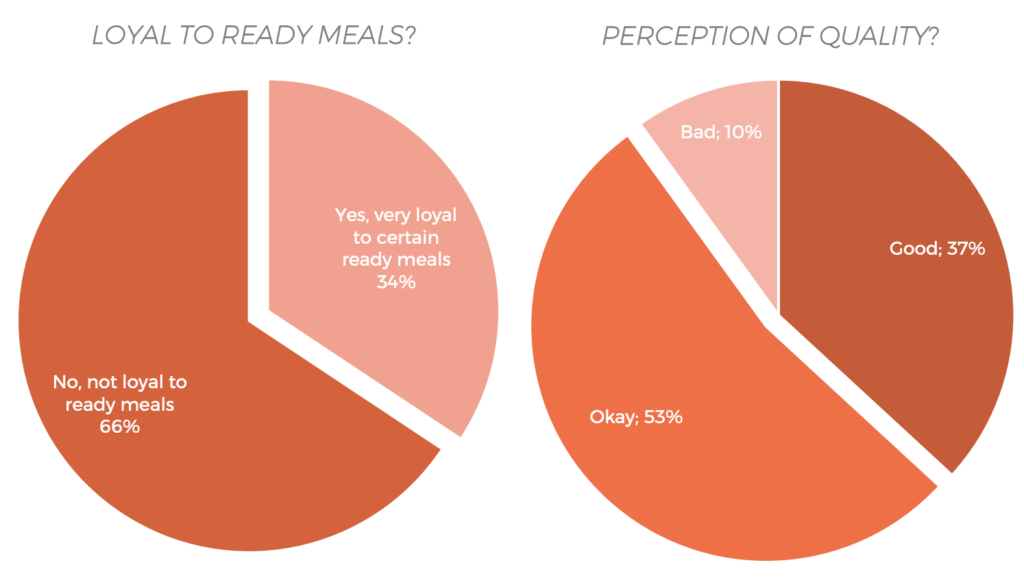
Fun fact
UK inhabitants are least loyal to Ready Meals. 83% claims not to be loyal at all.
The findings presented in this report are based on the results of an investigative task submitted to the Roamler Crowd during August 2019. The purpose was to determine the crowd’s purchasing practices when it comes to Ready Meals. The findings take into account data collected from 6.211 respondents, located in Spain, UK, Belgium, France, The Netherlands and Germany.